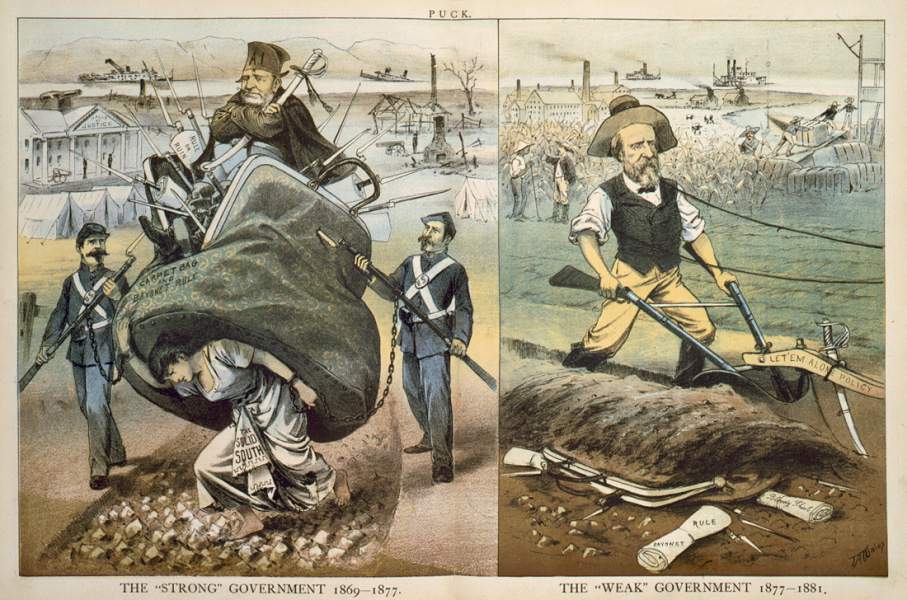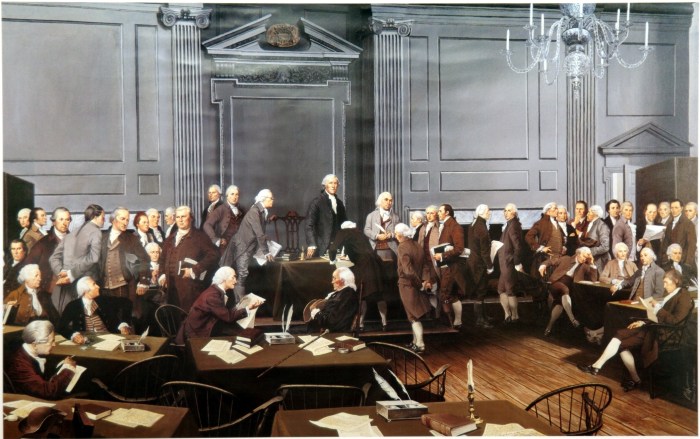How did hamilton’s argument affect political behaviors – In the realm of American political history, Alexander Hamilton’s compelling argument for a robust central government stands as a pivotal force that profoundly influenced political behaviors and the nation’s trajectory. This article delves into the intricacies of Hamilton’s argument, its historical context, and its lasting impact on the American political landscape.
Hamilton’s vision of a strong central government, as Artikeld in the Federalist Papers, sought to address the weaknesses of the Articles of Confederation and establish a more unified and stable nation. His arguments resonated with many, shaping the ratification of the Constitution and laying the groundwork for the development of a strong federal government.
Hamilton’s Argument for a Strong Central Government: How Did Hamilton’s Argument Affect Political Behaviors

Alexander Hamilton, one of the Founding Fathers of the United States, argued for the establishment of a strong central government in his influential work, “The Federalist Papers.” His arguments were based on historical context, the need for stability, and the promotion of economic growth.
Hamilton believed that a strong central government was necessary to prevent the collapse of the newly formed United States. He pointed to the examples of ancient Greece and Rome, where weak central governments led to chaos and tyranny.
Hamilton also argued that a strong central government was essential for economic growth. He believed that a central government could promote commerce, regulate trade, and create a stable financial system. This would encourage investment and economic development.
Historical Context
Hamilton’s arguments for a strong central government were influenced by the political and economic conditions of the time. The Articles of Confederation, which governed the United States after the Revolutionary War, created a weak central government that was unable to address the needs of the country.
The United States was facing economic problems, such as inflation and foreign debt. Hamilton believed that a strong central government could solve these problems by regulating the economy and promoting economic growth.
Impact on the Ratification of the Constitution
Hamilton’s arguments for a strong central government were influential in the ratification of the Constitution. The Constitution created a stronger central government than the Articles of Confederation, giving it the power to regulate commerce, tax, and raise an army.
Hamilton’s ideas were not universally accepted. Some people, such as Thomas Jefferson, believed that a strong central government would lead to tyranny. However, Hamilton’s arguments were persuasive enough to convince the majority of Americans to ratify the Constitution.
The Federalist Papers
The Federalist Papers were a series of 85 essays written by Alexander Hamilton, James Madison, and John Jay to promote the ratification of the Constitution. The essays were published in newspapers in New York, Philadelphia, and Boston from October 1787 to April 1788.
The Federalist Papers were written in response to the Anti-Federalists, who opposed the ratification of the Constitution. The Anti-Federalists argued that the Constitution would create a strong central government that would threaten the liberties of the people.
Main Arguments
The Federalist Papers presented a number of arguments in favor of the Constitution. These arguments included:
- The Constitution would create a more stable and efficient government than the Articles of Confederation.
- The Constitution would protect the rights of individuals and minorities.
- The Constitution would promote economic growth and prosperity.
Impact on American Political Thought
The Federalist Papers had a profound impact on American political thought. The essays helped to convince the majority of Americans to ratify the Constitution. They also established the principles of federalism, separation of powers, and judicial review.
The Federalist Papers continue to be studied today as a source of wisdom on the principles of American government.
Hamilton’s Economic Policies

Alexander Hamilton was the first Secretary of the Treasury of the United States. He developed a series of economic policies that had a major impact on the development of the United States.
Hamilton’s economic policies included:
- A national bank
- A protective tariff
- A system of internal improvements
Hamilton’s economic policies were controversial at the time, but they ultimately helped to create a strong and stable economy for the United States.
Controversy, How did hamilton’s argument affect political behaviors
Hamilton’s economic policies were controversial because they favored the wealthy and powerful. The national bank, for example, was seen as a way to give the rich control over the economy. The protective tariff benefited manufacturers at the expense of consumers.
Hamilton’s opponents, such as Thomas Jefferson, argued that his policies would lead to a plutocracy, where the wealthy few would rule over the majority.
Impact on Political Behavior
Hamilton’s economic policies had a significant impact on political behavior. His policies created a class of wealthy supporters who benefited from his policies. This class of supporters helped to keep Hamilton in power and to promote his policies.
Hamilton’s economic policies also created a class of opponents who were opposed to his policies. This class of opponents helped to form the Democratic-Republican Party, which opposed Hamilton’s policies.
Hamilton’s Legacy

Alexander Hamilton’s ideas have had a lasting impact on American politics. His belief in a strong central government, a protective tariff, and a national bank have all been adopted by the United States government.
Hamilton’s legacy has been interpreted and debated over time. Some people see him as a visionary who helped to create the United States. Others see him as an elitist who favored the wealthy and powerful.
Continuing Influence
Hamilton’s ideas continue to shape political behavior today. His belief in a strong central government is reflected in the current size and power of the federal government.
Hamilton’s belief in a protective tariff is reflected in the current debate over trade policy. His belief in a national bank is reflected in the current debate over the role of the Federal Reserve.
Hamilton’s legacy is a complex and controversial one. However, there is no doubt that he was one of the most influential figures in American history.
FAQ Guide
What were the key points of Hamilton’s argument for a strong central government?
Hamilton argued that a strong central government was necessary to ensure national security, promote economic growth, and maintain social order.
How did Hamilton’s argument influence the ratification of the Constitution?
Hamilton’s persuasive arguments in the Federalist Papers played a significant role in convincing many delegates to support the ratification of the Constitution.
What were some of the controversies surrounding Hamilton’s economic policies?
Hamilton’s economic policies, such as the establishment of a national bank and the assumption of state debts, were criticized by some who believed they favored the wealthy and concentrated power in the federal government.